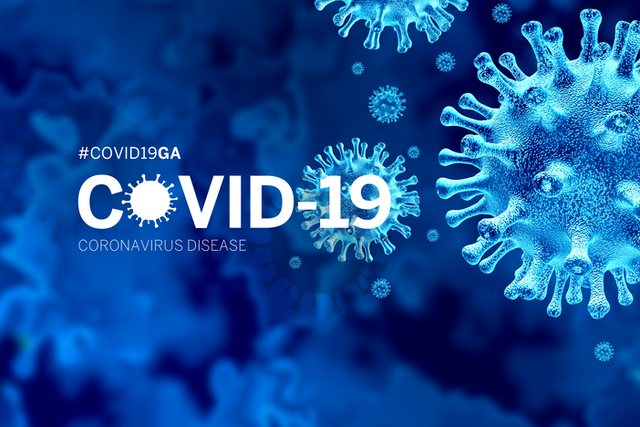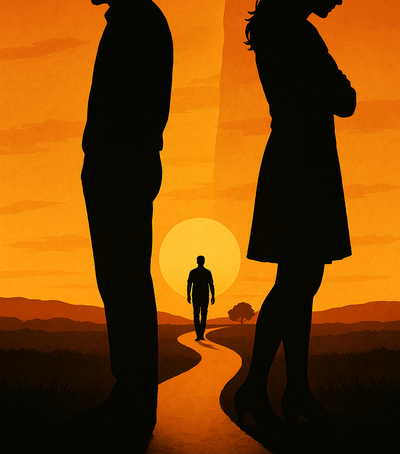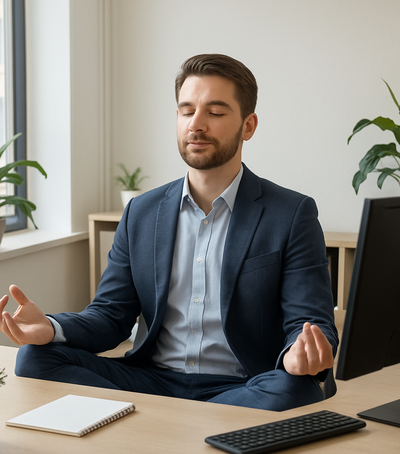
There is a huge difference between panic and awareness. With awareness comes responsibility, a respect for the scale of the problem, and a quiet awareness of what needs to be done.
One can be aware of coronavirus, aware of what needs to be done to minimize its spread - and we need to do those things. But it should not aggravate the situation with the negative imagination that is fear. For, like fire, the imagination can create or destroy. It can make us act out our worst selves. This is what panic does. Panic is the fear of taking steroids. With panic, sanity is lost. Since the virus entered our mental culture, it has become ubiquitous. We have been entrenched in his world, in his fearsome power.
Many friends I've spoken to on the phone said that from just reading about him, there were times at night that he was experiencing chest pain or an inability to breathe. A few moments later they felt better. After a search, they found nothing that went wrong with them. They had simply intensely imagined the symptoms they had read about and began to experience them in their bodies. It occurred to me that there may be a dimension of the pandemic that can be called mental infection.
Is it possible to cling to something until you get sick of it? People have made themselves sick with their minds. If this can happen with an individual fixation, what happens when a whole culture is obsessed with something as powerful for the imagination as the current pandemic?
Perhaps it is time to develop another mental infection, to counter this deadly force. Perhaps it is time to develop an infection of courage, good health and solidarity. Not enough has been said about the role of our mental state in fighting the virus. Fear brings the worst on us, it makes us panic buyers. But the generosity of the soul makes us think of our common survival. This awakens in us creative ways to cope with the stresses that come from measures needed to improve virus content. We are never more agile than when we act out of courage.
Not only will we survive this pandemic, but we will be judged by how we survived, by what we do next. We will either be transformed by what we did, or we will be damaged by how we failed to fulfill our potential for good. We are building ourselves all the time, but never so much as when faced with an existential crisis.
We are at one of those moments in history when we are given an unprecedented crisis in order to give ourselves an extraordinary response that can change our destiny as a species forever. We are in a void. Given the way we have managed life on this planet for the last 150 years, a kind of disaster was inevitable. We have overloaded the bank of our future. We have exhausted the welfare of the planet. There are those who talk about the current pandemic as nature pressing the reset button, nature talking back to humanity about the unimaginable ways in which we have abused and depleted it. They see it as nature's response to our arrogance.
It is therefore an important moment for us to reconsider consciousness as a species. A moment to take stock. The questions raised by the pandemic should spread to all other issues through which future disasters, climate change issues, surveillance, civil rights, universal health care, justice and poverty can arise. Mankind is transformed by those who receive the highest lessons from tragedy.
A pandemic of selfishness has eroded some of the best things the world has learned from the two world wars. Gradually, we are forgetting the value of international cooperation. Market values have taken on the values of human solidarity. And even of human life.

This is another way of saying that we have lost our way. We are deep in a new wilderness. We came here because only one kind of voice is heard loud, the voice of financial success. Other voices, just as valuable, have not been heard enough. Which voices are these? They are the voices that speak of nature, of the poor, of justice: voices that mock easily.
We have entered the age of disaster. They will be universal effective because the problems of the world are now universal. The climate catastrophe will not choose one place over another.
So much grief has divided us lately. The doctrines of separation have nowhere to lead us. There is no longer any real fate for small-minded dreams. The scale of our challenges must change the scale of our visionary response.
Panic, fueled by fear, must be replaced by a passion for a better life for the planet and its people. We will not get the calm we need to deal with this pandemic, through a fear of death. What we need is a respect for death and a new hunger for life. We can begin now to create the best chapter in human storytelling. We may say in the future that we faced a viral disaster, we did something amazing. Imagine if the world's leaders at the moment chose to implement policies that could bring about climate change, bring health and education to all its people, and destroy the poverty virus that has spread the inexpressible misery.
That may sound fantastic. But history has always been made by those who guided us with vision in the moments of our greatest crisis. All our myths point in two directions. We either go up, towards the true meaning of civilization, or we go towards an apocalypse.
Tragic times require extraordinary quality. We are made for heroic realities. We have always known what to do. Our ancestors coded our choices for us in fairy tales and legends. But we became deaf from what we needed to hear more.
The real tragedy would be if we went through this pandemic without changing it for the better. It would be like all those deaths, all those suffering, all the deaths to come, all the suffering to come, meant nothing.





